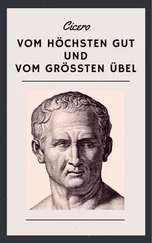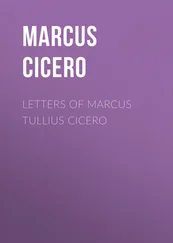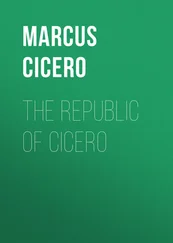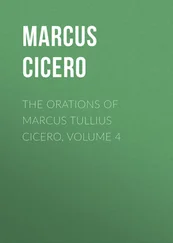Marcus Cicero - The Letters of Cicero, Volume 1
Здесь есть возможность читать онлайн «Marcus Cicero - The Letters of Cicero, Volume 1» — ознакомительный отрывок электронной книги совершенно бесплатно, а после прочтения отрывка купить полную версию. В некоторых случаях можно слушать аудио, скачать через торрент в формате fb2 и присутствует краткое содержание. Жанр: foreign_antique, Философия, foreign_edu, на английском языке. Описание произведения, (предисловие) а так же отзывы посетителей доступны на портале библиотеки ЛибКат.
- Название:The Letters of Cicero, Volume 1
- Автор:
- Жанр:
- Год:неизвестен
- ISBN:нет данных
- Рейтинг книги:4 / 5. Голосов: 1
-
Избранное:Добавить в избранное
- Отзывы:
-
Ваша оценка:
- 80
- 1
- 2
- 3
- 4
- 5
The Letters of Cicero, Volume 1: краткое содержание, описание и аннотация
Предлагаем к чтению аннотацию, описание, краткое содержание или предисловие (зависит от того, что написал сам автор книги «The Letters of Cicero, Volume 1»). Если вы не нашли необходимую информацию о книге — напишите в комментариях, мы постараемся отыскать её.
The Letters of Cicero, Volume 1 — читать онлайн ознакомительный отрывок
Ниже представлен текст книги, разбитый по страницам. Система сохранения места последней прочитанной страницы, позволяет с удобством читать онлайн бесплатно книгу «The Letters of Cicero, Volume 1», без необходимости каждый раз заново искать на чём Вы остановились. Поставьте закладку, и сможете в любой момент перейти на страницу, на которой закончили чтение.
Интервал:
Закладка:
XVIII (a 1, 13)
TO ATTICUS (IN EPIRUS)
Rome, 27 January
b.c. 61, æt. 45
I have now received three letters from you—one by the hands of M. Cornelius, which you gave him, I think, at Three Taverns; a second which your host at Canusium delivered to me; a third dated, according to you, from on board your pinnace, when the cable was already slipped. 76They were all three, to use a phrase from the schools of rhetoric flavoured with the salt of learning, and illumined with the marks of affection. In these letters, indeed, I am urgently pressed by you to send answers, but what renders me rather dilatory in this respect is the difficulty of finding a trustworthy carrier. How few of these gentry are able to convey a letter rather weightier than usual without lightening it by skimming its contents! Besides, I do not always care to send 77whenever anyone is starting for Epirus: for I suppose that, having offered victims before your Amaltheia, 78you at once started for the siege of Sicyon. And yet I am not even certain when you start to visit Antonius or how much time you are devoting to Epirus. Accordingly, I don't venture to trust either Achæans or Epirotes with a letter somewhat more outspoken than usual. Now some events have occurred since you left me worth my writing to you, but they must not be trusted to the risk of a letter being lost, opened, or intercepted.
Well, then, to begin with: I was not called upon to speak first, and the pacifier of the Allobroges 79was preferred to me, and though this met with some murmurs of disapprobation from the senate, I was not sorry it was done. For I am thereby freed from any obligation to shew respect to an ill-conditioned man, and am at liberty to support my position in the Republic in spite of him. Besides, the second place has a dignity almost equal to that of princeps senatus , and does not put one under too much of an obligation to the consul. The third called on was Catulus; the fourth, if you want to go still farther, Hortensius. The consul himself 80is a man of a small and ill-regulated mind, a mere buffoon of that splenetic kind which raises a laugh even in the absence of wit: it is his face rather than his facetiousness 81that causes merriment: he takes practically no part in public business, and is quite alienated from the Optimates. You need expect no service to the state from him, for he has not the will to do any, nor fear any damage, for he hasn't the courage to inflict it. His colleague, however, treats me with great distinction, and is also a zealous supporter of the loyalist party. For the present their disagreement has not come to much; but I fear that this taint may spread farther. For I suppose you have heard that when the state function was being performed in Cæsar's house a man in woman's dress got in, 82and that the Vestals having performed the rite again, mention was made of the matter in the senate by Q. Cornificius—he was the first, so don't think that it was one of us consulars—and that on the matter being referred by a decree of the senate to the [Virgins and] pontifices, they decided that a sacrilege had been committed: that then, on a farther decree of the senate, the consuls published a bill: and that Cæsar divorced his wife. On this question Piso, from friendship for P. Clodius, is doing his best to get the bill promulgated by himself (though in accordance with a decree of the senate and on a point of religion) rejected. Messalla as yet is strongly for severe measures. The loyalists hold aloof owing to the entreaties of Clodius: bands of ruffians are being got together: I myself, at first a stern Lycurgus, am becoming daily less and less keen about it: Cato is hot and eager. In short, I fear that between the indifference of the loyalists and the support of the disloyal it may be the cause of great evils to the Republic. However, your great friend 83—do you know whom I mean?—of whom you said in your letter that, "not venturing to blame me, he was beginning to be complimentary," is now to all appearance exceedingly fond of me, embraces me, loves and praises me in public, while in secret (though unable to disguise it) he is jealous of me. No good-breeding, no straightforwardness, no political morality, no distinction, no courage, no liberality! But on these points I will write to you more minutely at another time; for in the first place I am not yet quite sure about them, and in the next place I dare not intrust a letter on such weighty matters to such a casual nobody's son as this messenger.
The prætors have not yet drawn their lots for the provinces. The matter remains just where you left it. The description of the scenery of Misenum and Puteoli which you ask for I will include in my speech. 84I had already noticed the mistake in the date, 3rd of December. The points in my speeches which you praise, believe me, I liked very much myself, but did not venture to say so before. Now, however, as they have received your approval, I think them much more "Attic" than ever. To the speech in answer to Metellus 85I have made some additions. The book shall be sent you, since affection for me gives you a taste for rhetoric. What news have I for you? Let me see. Oh, yes! The consul Messalla has bought Antonius's house for 3,400 sestertia (about £27,200). What is that to me? you will say. Why, thus much. The price has convinced people that I made no bad bargain, and they begin to understand that in making a purchase a man may properly use his friends' means to get what suits his position. The Teucris affair drags on, yet I have hopes. Pray settle the business you have in hand. You shall have a more outspoken letter soon.
27 January, in the consulship of M. Messalla and M. Piso.
XIX (a i, 14)
TO ATTICUS (IN EPIRUS)
Rome, 13 February
b.c. 61, æt. 45
I fear it may seem affectation to tell you how occupied I have been; but I am so distracted with business that I have only just found time for this short letter, and that has been stolen from the most urgent engagements. I have already described to you Pompey's first public speech—it did not please the poor, nor satisfy the disloyal, nor find favour with the wealthy, nor appear sound to the loyalists; accordingly, he is down in the world. 86Presently, on the instigation of the consul Piso, that most insignificant of tribunes, Fufius, brought Pompey on to the platform. The meeting was in the circus Flaminius , and there was in the same place that day a crowd of market people—a kind of tiers état . 87He asked him to say whether he approved of the jurymen being selected by the prætor, to form a panel for the prætor himself to employ. That was the regulation made by the senate in the matter of Clodius's sacrilege. Thereupon Pompey made a highly "aristocratic" speech, and replied (and at great length) that in all matters the authority of the senate was of the greatest weight in his eyes and had always been so. Later on the consul Messalla in the senate asked Pompey his opinion as to the sacrilege and the bill that had been published. His speech in the senate amounted to a general commendation of all decrees of the house, and when he sat down he said to me, "I think my answer covers your case also." 88When Crassus observed that Pompey had got a cheer from the idea in men's minds that he approved my consulship, he rose also to his feet and delivered a speech in the most complimentary terms on my consulship, going so far as to say that he owed it to me that he was still a senator, a citizen, nay, a free man; and that he never beheld wife, home, or country without beholding the fruits of my conduct. In short: that whole topic, which I am wont to paint in various colours in my speeches (of which you are the Aristarchus), the fire, the sword—you know my paint-pots—he elaborated to the highest pitch. I was sitting next to Pompey. I noticed that he was agitated, either at Crassus earning the gratitude which he had himself neglected, or to think that my achievements were, after all, of such magnitude that the senate was so glad to hear them praised, especially by a man who was the less under an obligation to praise me, because in everything I ever wrote 89my praise of Pompey was practically a reflexion on him. This day has brought me very close to Crassus, and yet in spite of all I accepted with pleasure any compliment—open or covert—from Pompey. But as for my own speech, good heavens! how I did "put it on" for the benefit of my new auditor Pompey! If I ever did bring every art into play, I did then—period, transition, enthymeme, deduction—everything. In short, I was cheered to the echo. For the subject of my speech was the dignity of the senate, its harmony with the equites, the unanimity of Italy, the dying embers of the conspiracy, the fall in prices, the establishment of peace. You know my thunder when these are my themes. It was so loud, in fact, that I may cut short my description, as I think you must have heard it even in Epirus. The state of things at Rome is this: the senate is a perfect Areopagus. You cannot conceive anything firmer, more grave, or more high-spirited. For when the day came for proposing the bill in accordance with the vote of the senate, a crowd of our dandies with their chin-tufts assembled, all the Catiline set, with Curio's girlish son at their head, and implored the people to reject it. Moreover, Piso the consul, who formally introduced the bill, spoke against it. Clodius's hired ruffians had filled up the entrances to the voting boxes. The voting tickets were so manipulated that no "ayes" were distributed. Hereupon imagine Cato hurrying to the rostra, delivering an admirable invective against the consul, if we can call that an "invective" which was really a speech of the utmost weight and authority, and in fact containing the most salutary advice. He is followed to the same effect by your friend Hortensius, and many loyalists besides, among whom, however, the contribution of Favonius was conspicuous. By this rally of the Optimates the comitia is dissolved, the senate summoned. On the question being put in a full house—in spite of the opposition of Piso, and in spite of Clodius throwing himself at the feet of the senators one after the other—that the consuls should exhort the people to pass the bill, about fifteen voted with Curio, who was against any decree being passed; on the other side there were fully four hundred. So the vote passed. The tribune Fufius then gave in. 90Clodius delivered some wretched speeches to the people, in which he bestowed some injurious epithets on Lucullus, Hortensius, C. Piso, and the consul Messalla; me he only charged with having "discovered" everything. 91In regard to the assignation of provinces to the prætors, the hearing legations, and other business, the senate voted that nothing should be brought before it till the bill had been brought before the people. There's the state of things at Rome for you. Yet pray listen to this one thing more which has surpassed my hopes. Messalla is a superlatively good consul, courageous, firm, painstaking; he praises, shows attachment to, and imitates me. That other one (Piso) is the less mischievous because of one vice—he is lazy, sleepy, unbusiness-like, an utter fainéant , but in intention he is so disaffected that he has begun to loathe Pompey since he made the speech in which some praise was bestowed on the senate. Accordingly, he has alienated all the loyalists to a remarkable degree. And his action is not dictated by love for Clodius more than by a taste for a profligate policy and a profligate party. But he has nobody among the magistrates like himself, with the single exception of the tribune Fufius. The tribunes are excellent, and in Cornutus we have a quasi-Cato. Can I say more?
Читать дальшеИнтервал:
Закладка:
Похожие книги на «The Letters of Cicero, Volume 1»
Представляем Вашему вниманию похожие книги на «The Letters of Cicero, Volume 1» списком для выбора. Мы отобрали схожую по названию и смыслу литературу в надежде предоставить читателям больше вариантов отыскать новые, интересные, ещё непрочитанные произведения.
Обсуждение, отзывы о книге «The Letters of Cicero, Volume 1» и просто собственные мнения читателей. Оставьте ваши комментарии, напишите, что Вы думаете о произведении, его смысле или главных героях. Укажите что конкретно понравилось, а что нет, и почему Вы так считаете.












